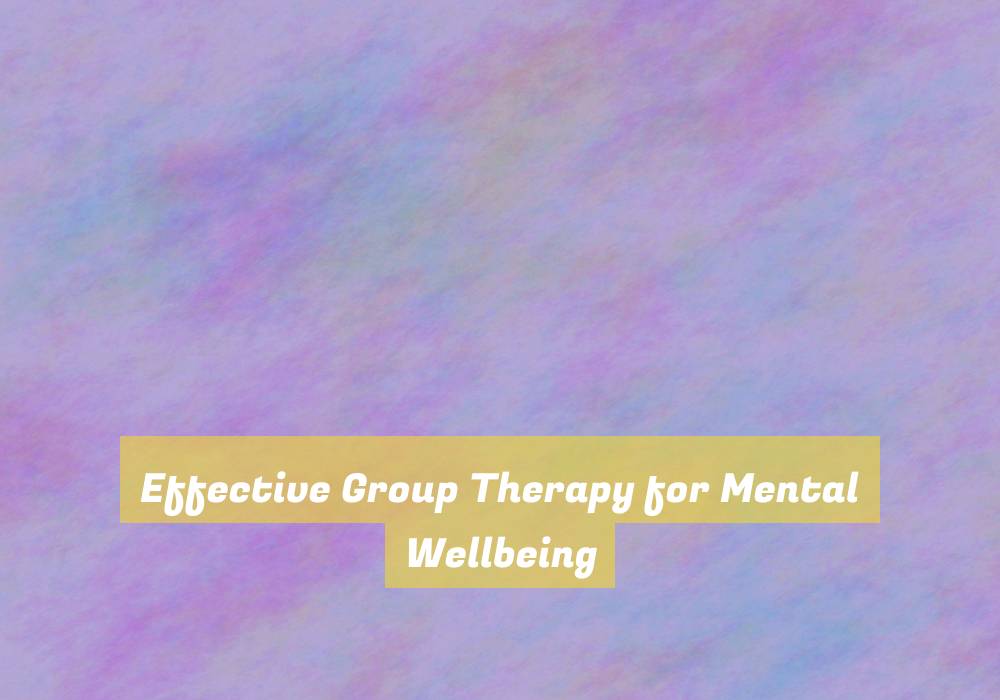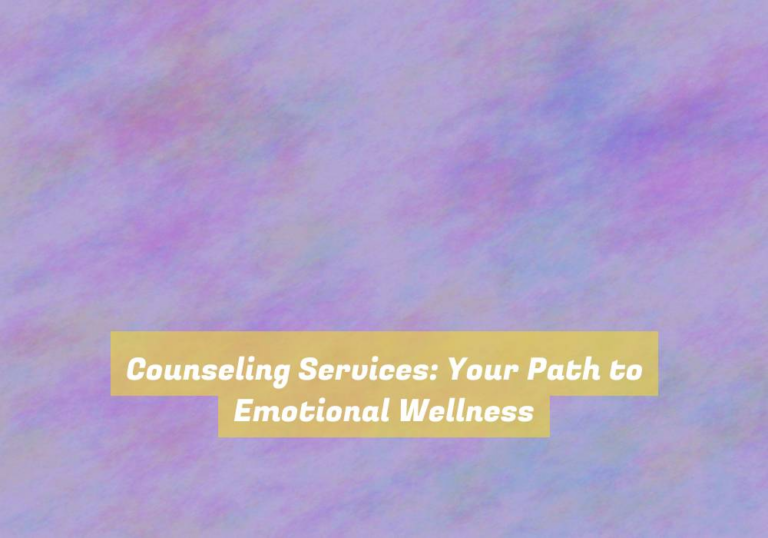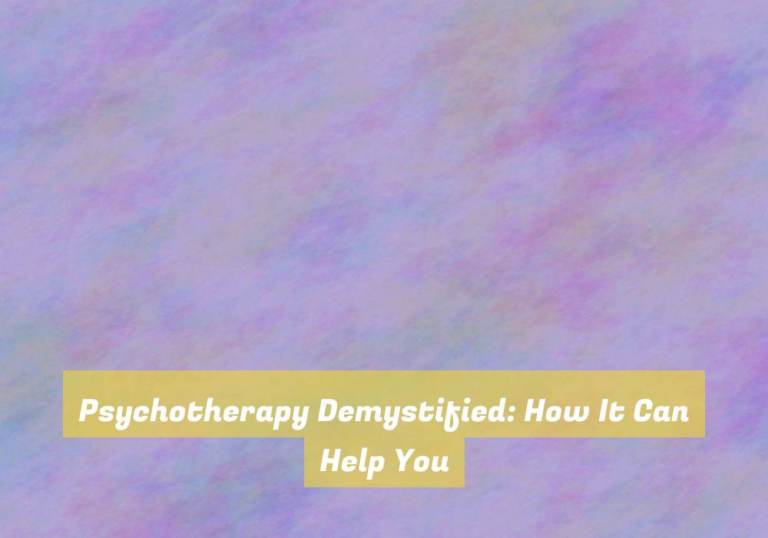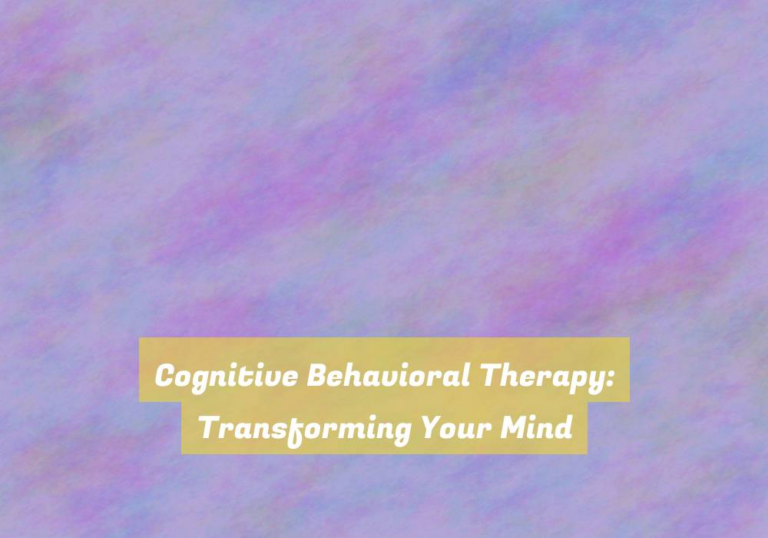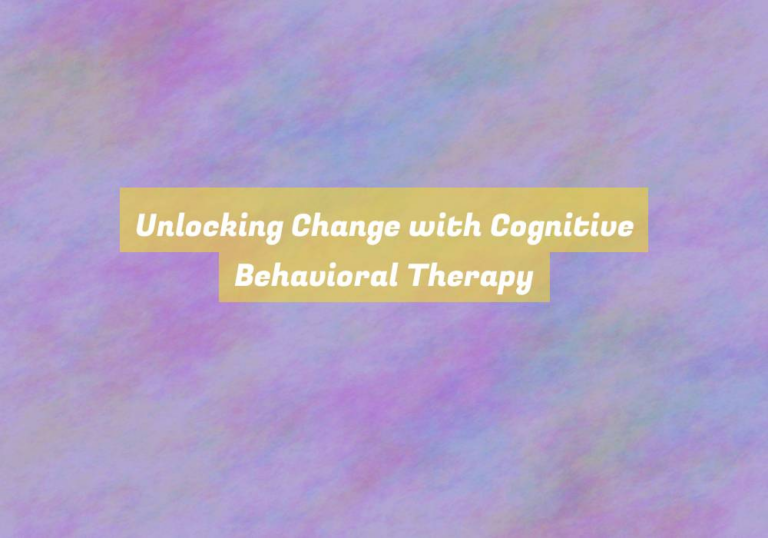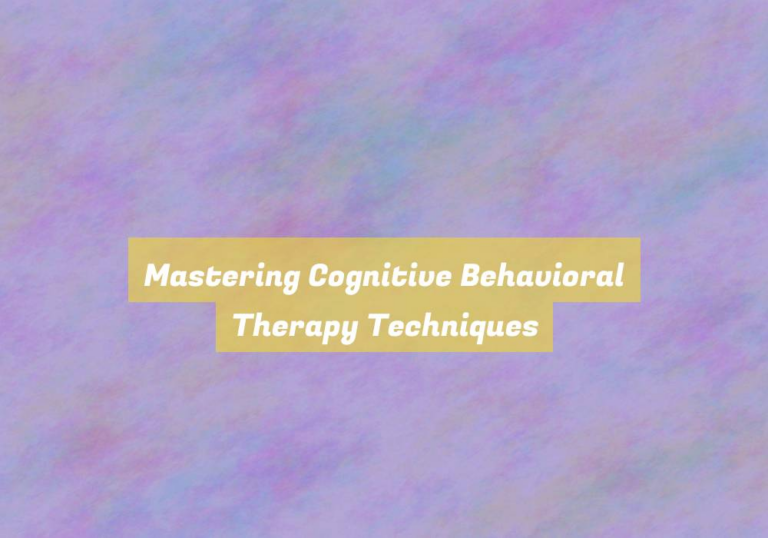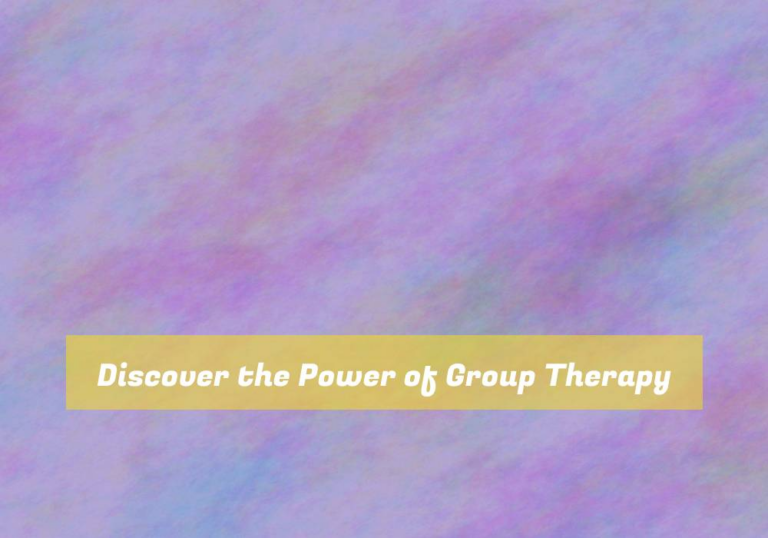Effective Group Therapy for Mental Wellbeing
You may not be aware that group therapy has been proven to be a highly effective form of treatment for mental wellbeing. It offers unique benefits that individual therapy may not provide, and it can be a valuable resource for individuals struggling with various mental health issues.
But what exactly makes group therapy so effective, and how can you ensure that you get the most out of these sessions? LetG??s explore the key components and strategies for maximizing the effectiveness of group therapy for mental wellbeing.
The Importance of Group Therapy
Group therapy offers a supportive environment where individuals can share their experiences and learn from others facing similar challenges. It provides a sense of community and belonging, which can be incredibly comforting, especially for those struggling with feelings of isolation or loneliness. In a group setting, you have the opportunity to gain multiple perspectives on your own situation, which can lead to valuable insights and personal growth.
One of the key advantages of group therapy is the opportunity to witness the progress of others. Seeing someone who was once in a similar position to you overcome their challenges can be incredibly motivating and inspiring. It offers hope and shows that recovery is possible, which can be a powerful force in your own journey towards mental wellbeing.
Additionally, group therapy provides a safe space to practice social skills and improve your interpersonal relationships. The feedback and support from other group members can help you develop healthier communication patterns and establish more fulfilling connections with others. This can be particularly beneficial for individuals struggling with social anxiety or difficulties in forming and maintaining relationships.
Benefits of Group Therapy
Experiencing group therapy can lead to a deeper understanding of your own challenges and strengths, fostering personal growth. One of the key benefits is the sense of universality that comes from realizing that others share similar struggles. This can reduce feelings of isolation and help you see that you arenG??t alone in your experiences.
Group therapy also provides a supportive environment where you can both give and receive feedback, gaining insight and different perspectives from peers who may offer valuable suggestions for coping with your issues. Additionally, being part of a group allows you to develop and practice social skills, such as communication, empathy, and trust, which can positively impact your relationships outside of the therapy setting.
The group dynamic can create a sense of accountability, motivating you to actively participate in your own healing process. Moreover, witnessing the progress of others in the group can inspire hope and optimism for your own journey.
Key Components of Effective Group Therapy
To ensure effective group therapy, itG??s crucial to establish clear and structured guidelines that promote a safe and respectful environment for all participants.
The first key component is setting clear goals for the group. These goals should be specific, measurable, attainable, relevant, and time-bound. Having clear objectives helps the group stay focused and work towards tangible outcomes.
Additionally, effective group therapy requires the establishment of trust and confidentiality among the participants. This involves creating a space where individuals feel comfortable sharing their thoughts and emotions without fear of judgment or breach of privacy.
Another essential component is the presence of a skilled and empathetic facilitator who can guide the group discussions, manage conflicts, and ensure that the therapeutic process remains on track.
Furthermore, promoting active participation from all members is vital for the success of group therapy. Encouraging open communication and active listening fosters a supportive and collaborative atmosphere.
Strategies for Maximizing Group Therapy Sessions
Maximizing the effectiveness of group therapy sessions requires implementing specific strategies to enhance participant engagement and therapeutic outcomes.
To begin, establishing clear session objectives and guidelines can help create a structured and safe environment for all participants.
Encouraging active participation from each member by using open-ended questions and facilitating group discussions can foster a sense of community and mutual support.
Additionally, incorporating various therapeutic techniques such as role-playing, mindfulness exercises, and cognitive-behavioral interventions can provide diverse approaches to address the needs of different individuals within the group.
ItG??s crucial to regularly assess the group dynamics and make necessary adjustments to ensure that the sessions remain relevant and beneficial for everyone involved.
Furthermore, providing consistent and constructive feedback can aid in personal growth and development for each participant.
Lastly, promoting a sense of accountability and commitment to the group process can cultivate a supportive and motivating atmosphere.
Conclusion
In conclusion, group therapy can be a highly effective approach for improving mental wellbeing. By providing a supportive and collaborative environment, group therapy offers numerous benefits such as building connections, gaining different perspectives, and feeling less isolated.
To maximize the effectiveness of group therapy, itG??s important to focus on key components such as setting clear goals, creating a safe space, and encouraging active participation.
Overall, group therapy can be a valuable tool for promoting mental health and emotional growth.

